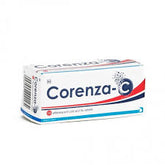featured Muscular dystrophy
On by ZimSeller Pharmacy 0 comments
Munchausen's syndrome
On by ZimSeller Pharmacy 0 comments
Multiple system atrophy
On by ZimSeller Pharmacy 0 comments
Multiple myeloma
On by ZimSeller Pharmacy 0 comments
Mucositis
On by ZimSeller Pharmacy 0 comments
MRSA
On by ZimSeller Pharmacy 0 comments
MRI scan
On by ZimSeller Pharmacy 0 comments





















